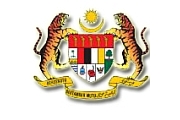Community Consultation
IPv6 Address Management and ITU: Is an "additional parallel structure" required
| When: | 14:00 - 15:30, Wednesday, 3 March 2010 |
|---|---|
| Where: | Conference Hall 2, Kuala Lumpur Convention Center |
Transcript, Video & Audio
The transcript for this session is now available.
The video and audio for this session is now available below, and also from the Podcast and Vodcast feeds.
Written Submissions
Written submissions from community members are available here as a PDF document.Following presentations by the panellists and extended comments from the floor, APNIC Executive Council Member James Spencely, proposed a text outlining the community's position for presentation to the ITU IPv6 Group.
After agreeing to the addition of subsequent comments and some editorial review, the community reached consensus on the statement.
The statement was later posted to the community mailing list "APNIC-Talk" and is available here in text format.
Final Report
As the final result of this consultation, the Chairs of the session elaborated a report, which was submitted on 5 March, 2010 for the deliberations of the ITU IPv6 Group.
The report includes the consensus statement reached by the participants of this consultation.
| Agenda | ||
|---|---|---|
| 14:00 |
Introduction
Session chair |
Slides
115.0 KB Slides (alt) 77.9 KB Transcript Audio Video |
|
Concerns on IPv6 as a Public Policy Issue
Xiaoya Yang |
Slides
2.6 MB Slides (alt) 4.9 MB Transcript Audio Video |
|
|
An Expansionary Approach towards the IPv6 Address Allocation Model
Sureswaran Ramadass |
Slides
3.6 MB Slides (alt) 14.7 MB Transcript Audio Video |
|
|
Developing countries approach for IP address management
Adiel A. Akplogan |
Transcript Audio Video |
|
|
Relations between ICANN and RIRs
Save Vocea |
Transcript Audio Video |
|
|
Post-break introduction
|
Transcript Audio Video |
|
|
Open floor discussion
|
Transcript Audio Video |
|
|
Text proposal
|
Transcript Audio Video |
|
Internet address management may be on the brink of change. The ITU is investigating a number of issues surrounding the adoption of IPv6. In accordance with the recommendations of the ITU Council meeting of 20 October 2009, the ITU established an IPv6 Group to investigate a number of issues. These include the possibility of the ITU becoming an International Internet Registry and the feasibility of implementing a Country Internet Registry model for interested Member States to use as an alternative to the Regional Internet Registry system. This group will meet with its Member States and Sector Members on 15-16 March 2010. The findings of the ITU IPv6 Group will then be reported to the ITU Council 2010 meeting in April.
In collaboration with the NRO, APNIC is hosting a special session at APRICOT 2010 to give the technical community, amongst other stakeholders, an opportunity to discuss the issues and ramifications of the ITU's possible entry into the IP address management arena. Along with other experts, APNIC, as an ITU-D sector member, will attend the ITU IPv6 Group meeting in March. APNIC will report any results from the session at APRICOT 2010 to that ITU IPv6 Group meeting.
Key documents
The following documents will give participants a background to some of the discussions to take place at the ITU IPv6 Group meeting in March:
| Session Chairs |
|---|
| Chair: Masato Yamanishi, Softbank BB, Japan |
| Co Chair: Sharil Tarmizi, Malaysian Communications and Multimedia Commission |
| Invited Panellists |
| Adiel Akplogan, CEO, AFRINIC |
| Xiaoya Yang, Telecommunication Standardization Bureau (TSB) International Telecommunication Union |
| Savenaca Vocea, Global Partnerships, Manager, Regional Relations - Australasia/Pacific Islands, ICANN |
| Dr.Sureswaran Ramadass, Nav6 |
Panellists are asked to construct their 10 minute presentation around the following:
- The ITU is investigating the possibility of becoming an international Internet Registry, as an alternative to the RIR system. Where is the demand for this system coming from and would competition between IP address management systems bring any benefits to the current and future Internet stakeholders?
- Recent documents commissioned by the ITU have suggested that if the ITU were to become an Internet Registry, and if it were to delegate IP addresses to Country Internet Registries, policies for address management would need to be consistent with RIR policies. Is this a realistic possibility? Or does the possibility of nationalized addressing systems lead to divergent policy systems? If so, what are the risks for the Internet of divergent policy environments?
- According to the RIRs, the current IP address management system operates on the basis of open, bottom-up, consensus-driven policy making that responds to the changing needs of the Internet and its stakeholders. If the ITU were to become an Internet registry, how would the ITU model affect the current Internet development model? Are there stakeholders or circumstances which are not accommodated by this system, and if so, who or what are they?







